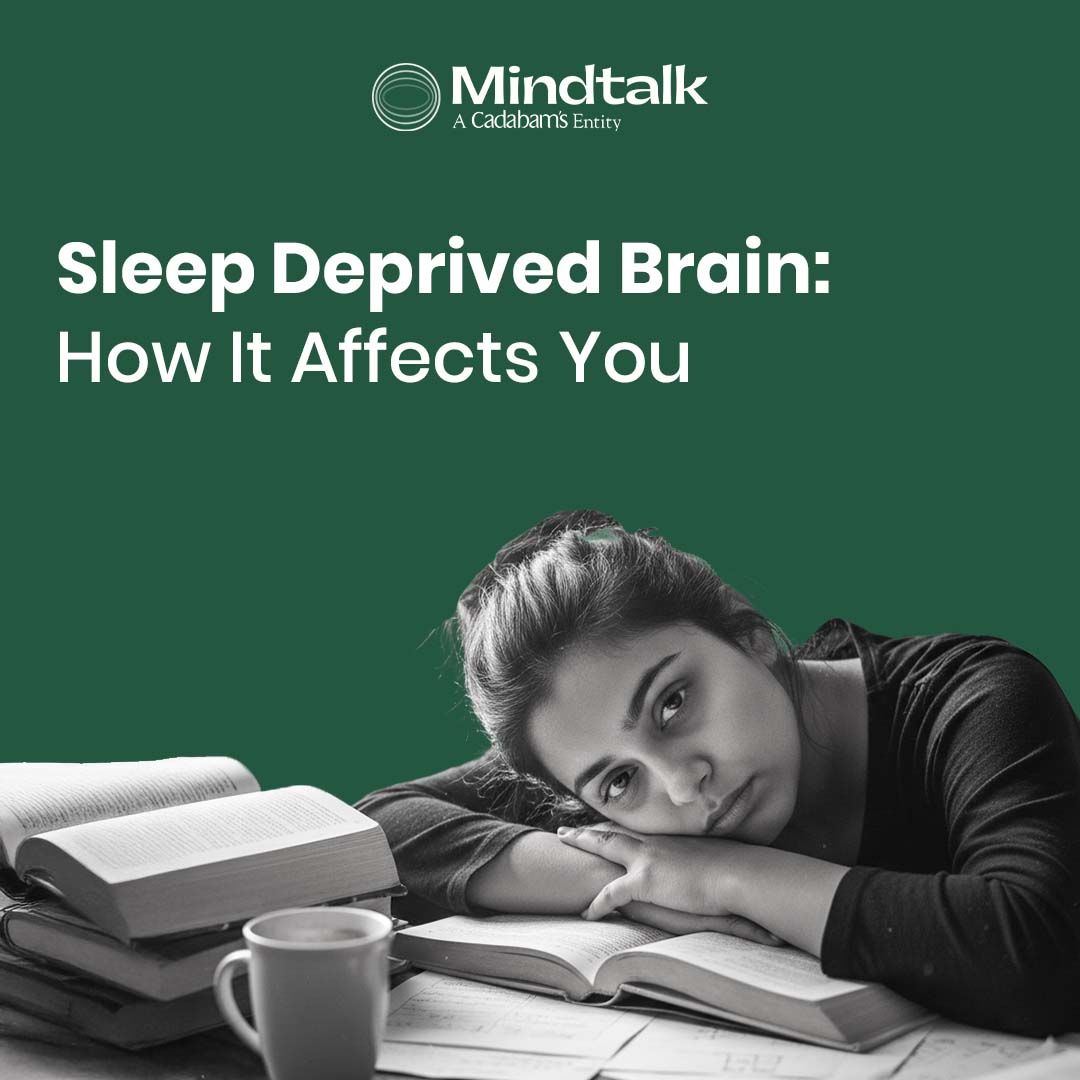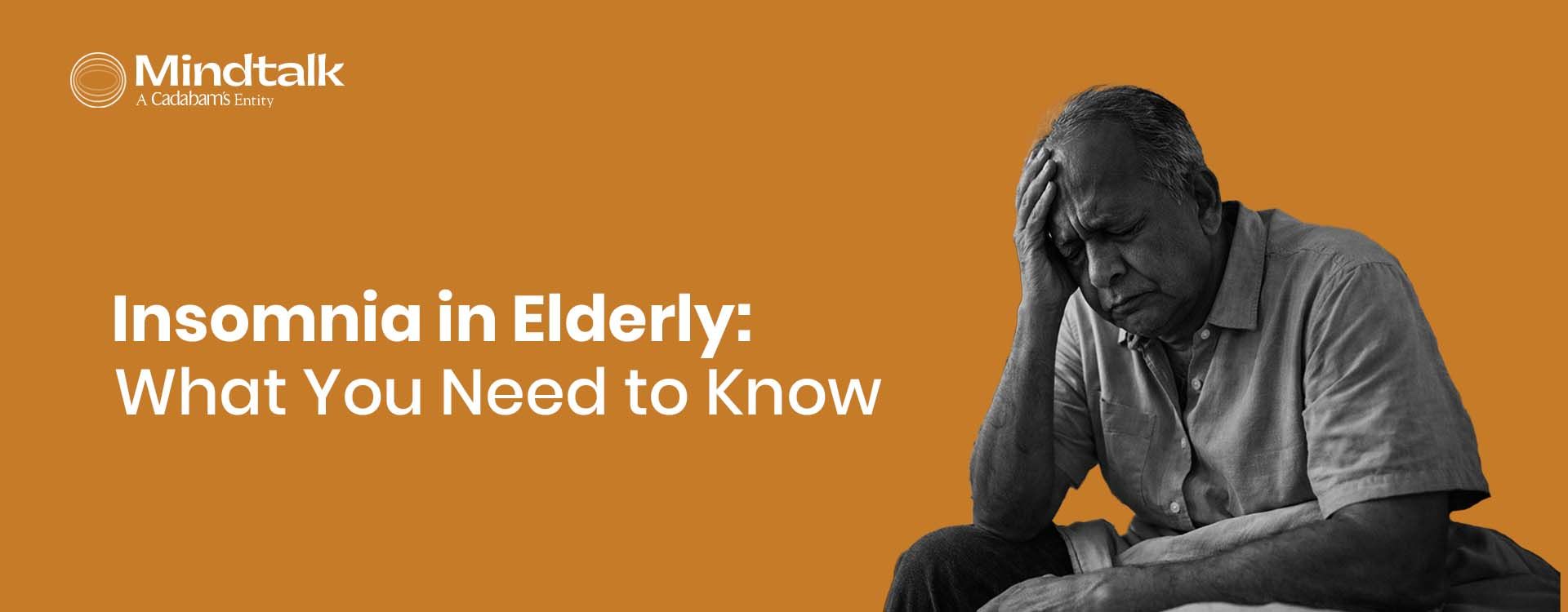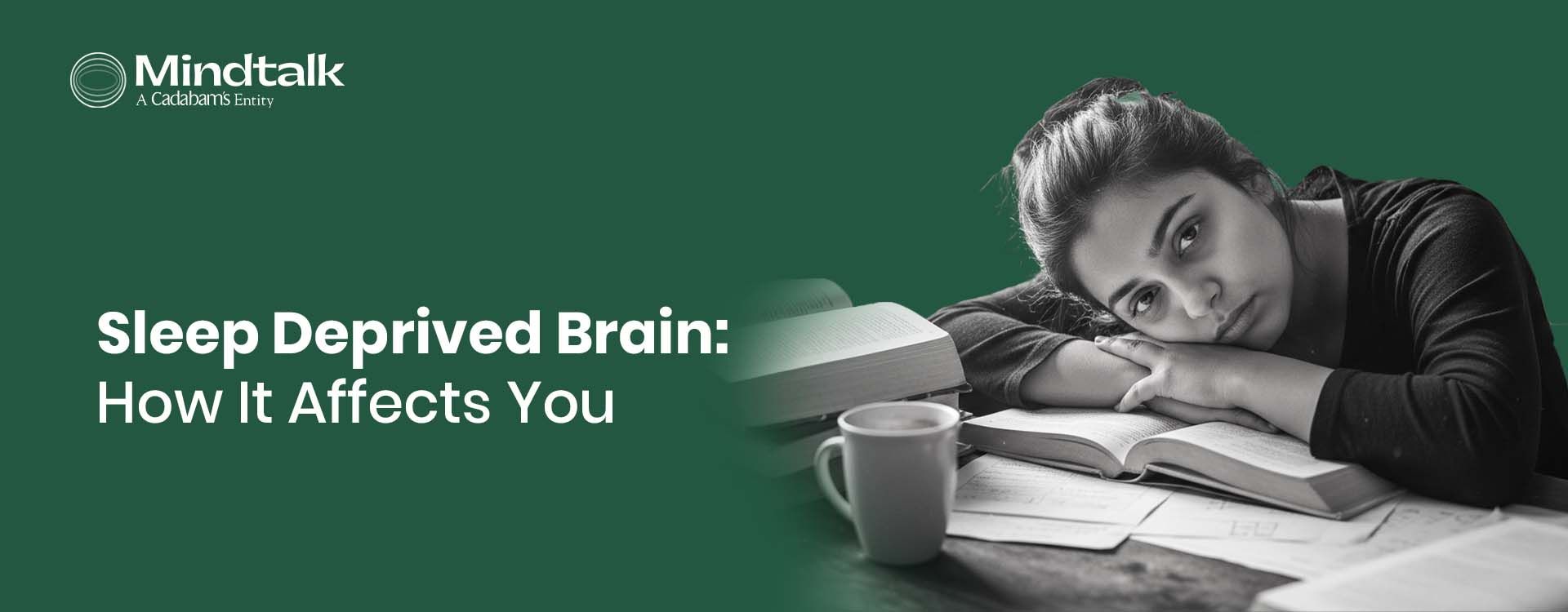The Sleep-Deprived Brain: How Lack of Rest Affects Your Mood, Memory, and Health
Sleep deprivation has become a growing problem in today’s world, silently affecting brain health and overall well-being. With busy schedules, endless screen time and constant stress, modern lifestyles contribute greatly to chronic sleep deprivation and jeopardise memory, mood and long-term health.

Why Sleep Is Essential for Brain Health
Sleep plays a crucial role in maintaining brain function and mental and emotional stability. During sleep, the brain goes through complex cycles that allow it to heal, reboot and process information gathered during the day. Without this important downtime, the brain cannot function optimally.
The Science of Sleep – How the Brain Restores Itself Overnight
Sleep is categorised into different phases — light sleep, deep sleep and REM (Rapid Eye Movement) sleep — each of which has unique functions. These phases allow the brain to repair itself and strengthen the connections between neurons.
It also strengthens the brain’s plasticity, which is essential for learning and adapting to new information.
The Role of Deep Sleep and REM in Cognitive Function
Deep sleep has been shown to be important for emotional balance and physical recovery, while REM sleep is crucial for memory consolidation and creative thinking. During REM sleep, the brain processes emotions and integrates experiences, which helps individuals make sense of their day.
Without adequate REM sleep, problem-solving skills and emotional control can be impaired, making it more difficult to function well mentally and socially.
What Happens When We Don’t Get Enough Sleep?
If we don't get enough rest, our brain performance decreases. Processing speed, concentration and memory decline, making even simple tasks difficult. Over time, cognitive decline can worsen and the risk of mood disorders and mental fatigue increases.
The Impact of Sleep Deprivation on Mood and Emotional Well-Being
Mood regulation is closely linked to sleep quality. When the brain is not well rested, it is much more difficult to control emotions, leading to increased stress, irritability and mental health problems.
How Lack of Sleep Increases Stress and Anxiety
Increased levels of cortisol, the stress hormone, have been observed in people who do not get enough sleep. This hormonal imbalance contributes to a constant state of alertness and anxiety. Over time, it disrupts sleep, and a lack of sleep increases stress, making it difficult to maintain emotional stability.
The Connection Between Sleep Deprivation and Depression
Sleep disturbances have been shown to affect mood-related neurotransmitters, including serotonin and dopamine. Numerous studies have shown that people with insomnia or irregular sleep patterns have a significantly higher risk of depressive symptoms and long-term mood disorders.
Why Sleep Loss Leads to Irritability and Mood Swings
Poor sleep has a direct impact on emotional control and social behaviour. When the brain does not get enough rest, it becomes more reactive and less able to process frustrations or disappointments. This leads to irritability and unpredictable mood swings, affecting relationships and daily communication.
Sleep Deprivation and Memory: How Poor Sleep Affects Learning
Sleep plays a crucial role in the brain’s ability to learn, retain and recall information. Without sufficient rest, these processes are disrupted, making learning and memory much more difficult to manage.
The Brain’s Memory Consolidation Process During Sleep
During sleep, the brain actively organises and stores the information it has collected during the day. This process, known as memory consolidation, mainly takes place during the deep and REM sleep phases. Uninterrupted sleep is important because it allows the brain to move short-term memories into long-term storage. If the rest period is too short, this process is interrupted, leading to gaps in memory performance and reduced learning efficiency.
How Sleep Deprivation Impairs Focus and Decision-Making
Without adequate sleep, the brain’s ability to concentrate and make sound decisions is impaired. People who are sleep deprived often have slower reaction times, poorer judgment and an increased risk of making mistakes, especially in situations involving important decisions.
The Long-Term Impact of Chronic Sleep Loss On Memory
Chronic sleep deprivation has been linked to long-term memory problems and an increased risk of cognitive decline. Studies have shown that prolonged sleep deprivation increases the likelihood of developing dementia and other neurodegenerative diseases.
The Physical Health Risks of Sleep Deprivation
Sleep is not only important for mental clarity, but also for physical health. Without adequate sleep, various systems in the body become overworked, leading to an increased risk of serious health conditions.
Increased Risk of Heart Disease, Diabetes, And High Blood Pressure
Chronic sleep deprivation is associated with an increased risk of cardiovascular disease. Sleep deprivation increases blood pressure and impairs the body’s ability to regulate blood sugar. Over time, this increases the likelihood of developing type 2 diabetes, heart attacks and strokes.
How Lack of Sleep Weakens the Immune System
Lack of sleep has been shown to reduce the body’s ability to fight off infections. Immune cells and antibodies are produced more slowly, making it harder for the body to respond to viruses or recover from illness.
Sleep Deprivation and Weight Gain – The Hormone Connection
Hunger-regulating hormones such as ghrelin and leptin are directly influenced by sleep. When sleep deprivation occurs, ghrelin levels (which stimulate appetite) increase, while leptin levels (which signal satiety) decrease. As a result, cravings for high-calorie foods become stronger, leading to possible weight gain and difficulty in maintaining a healthy diet.
The Connection Between Sleep and Productivity
The ability to concentrate, process information and complete tasks efficiently is closely linked to the quality of sleep. Without sufficient rest, productivity suffers in both academic and professional environments.
How Sleep Deprivation Reduces Concentration and Efficiency
Mental sluggishness and a lack of mental clarity have been consistently observed in people who are sleep deprived. The brain processes information more slowly, making meeting deadlines or completing multi-step tasks more difficult.
Why Sleep-Deprived Brains Struggle with Problem-Solving
Problem solving and creative thinking depend on a well-rested brain. When sleep deprived, the brain’s ability to connect ideas, think critically or innovate is significantly impaired. Tasks that require abstract thinking or creative input suffer, and it becomes more difficult to find solutions to problems.
How Improving Sleep Can Enhance Workplace and Academic Performance
Improved sleep has been shown to improve memory, attention span and performance outcomes. Case studies in various industries have shown measurable improvements in productivity and efficiency after correcting sleep schedules. Whether at school or at work, well-rested people complete tasks faster, make better decisions and achieve more consistent results.
How to Identify If You’re Sleep-Deprived
Recognising the signs of sleep deprivation can help prevent long-term effects on health and performance.
Common Signs – Brain Fog, Daytime Drowsiness, And Difficulty Focusing
Chronic sleep deprivation often manifests itself in mental fatigue, forgetfulness and difficulty concentrating. Daytime sleepiness and a persistent feeling of tiredness—even after waking up—are common signs.
How Sleep Debt Accumulates Over Time
A sleep deficit occurs when the body constantly gets less rest than it needs. Contrary to popular belief, the effects of chronic sleep deprivation cannot be fully compensated for, even by catching up on sleep at the weekend. Sleep loss builds up gradually and affects mood, alertness and memory in ways that cannot always be remedied by a night or two of extra sleep.
The Dangers of Microsleeps and Sleep Deprivation Hallucinations
Extreme sleep deprivation can trigger microsleeps — brief, involuntary moments of unconsciousness that last only a few seconds. These episodes can occur without warning and are particularly dangerous when driving or operating machinery. In severe cases, hallucinations and delusions have been reported, showing how much the brain depends on adequate rest.
Tips to Improve Sleep Quality and Get Restorative Sleep
In order to improve the quality of sleep, certain habits and routines must be consistently adhered to. By focusing on sleep hygiene and relaxation techniques, it is easier to achieve restful and regenerative sleep.
The Role of Sleep Hygiene – Creating A Healthy Nighttime Routine
Sleep hygiene is a set of practices that promote consistent and quality sleep. Nightly routines such as reading, dimming the lights or gentle stretching can signal to the brain that it's time to wind down and help the body switch into sleep mode more effectively.
Why Screen Time Before Bed Disrupts Sleep
Screens emit blue light, which has been shown to interfere with the natural production of melatonin, the hormone responsible for regulating sleep. When screens such as phones, TVs or computers are used before bedtime, the brain is fooled into thinking it is still daytime.
How Diet and Exercise Influence Sleep Patterns
What you eat during the day and how your body moves have a major influence on the quality of your sleep at night. Heavy meals and caffeine just before bedtime should be avoided, while foods rich in magnesium and tryptophan can promote relaxation. Regular exercise — especially in the morning or afternoon - is associated with a deeper and more consistent sleep cycle.
Natural Remedies for Better Sleep – Herbal Teas, Meditation, And Aromatherapy
Natural methods such as drinking chamomile tea, mindfulness meditation or using essential oils such as lavender have been proven to promote sleep. These methods calm the mind, reduce tension and prepare the body for sleep. As alternatives to medication, they can be safely integrated into your nightly routine to promote better sleep.
How Much Sleep Do You Actually Need?
The amount of sleep you need varies depending on your age and lifestyle, but the quality is just as important as the quantity. Knowing your sleep needs can help you avoid both too little and too much sleep.
Sleep Recommendations by Age Group
Experts have recommended different sleep times depending on age. Children generally need 9 to 12 hours; teenagers 8 to 10 hours and adults should sleep 7 to 9 hours per night. Seniors may need slightly less, but the need for deep, restorative sleep is equally important for all age groups.
The Difference Between Quality Sleep Vs. Hours of Sleep
Not all sleep is equally good. Simply spending more time in bed is no guarantee of better rest. The quality of sleep is defined by uninterrupted cycles and a feeling of refreshment upon waking, not just the number of hours slept.
The Impact of Oversleeping – Can Too Much Sleep Be Harmful?
While adequate sleep is vital, consistently oversleeping has been linked to various health problems. Studies have shown a link between increased sleep duration and conditions such as depression, diabetes and cardiovascular problems. Too much sleep can also be an indication of underlying health problems, such as sleep disorders or chronic fatigue.
The Role of Naps: Can Short Sleep Boost Your Brain?
Short naps can be an effective way to restore alertness and improve brain function. However, the timing and duration of the nap must be carefully planned so as not to interfere with sleep.
Power Naps Vs. Long Naps – When to Take Them
Naps lasting 10 to 20 minutes are considered the most effective for a quick energy and alertness boost. Longer naps can lead to fatigue because you wake up during deep sleep. To avoid sleep inertia, naps should be taken in the early afternoon and kept short.
The Benefits of Napping for Memory and Alertness
Studies have shown that short naps can improve cognitive performance, memory and mood. During naps, the brain consolidates information and reduces minor mental fatigue. This midday nap has been shown to be particularly beneficial for students, shift workers and people who are sleep deprived.
How To Nap Without Disrupting Nighttime Sleep
To ensure that nighttime sleep is not disturbed, naps should be taken at least 6 hours before bedtime. A dark, quiet and cool environment can improve the effectiveness of the nap. A late evening nap or a nap lasting more than 30 minutes can help maintain a healthy circadian rhythm and improve overall sleep.
How Mindtalk Helps with Sleeping Problems
Mindtalk is one of the top mental health clinics that offers active support for sleep-related problems through personalised psychological support. Sleep problems are addressed through expert psychological interventions tailored to individual needs.
How Psychological Support Improves Sleep Quality
Sleep disorders are often due to stress, anxiety or unresolved emotional issues. At Mindtalk, therapy sessions are led by mental health professionals to help people manage stress, develop healthy routines and address emotional triggers. When emotional balance is restored, sleep quality often improves as well.
Cognitive Behavioral Therapy (CBT) for Sleep Disorders
Cognitive behavioural therapy is widely recognised as an effective treatment for insomnia and related sleep disorders. At Mindtalk, CBT techniques are used to identify and change negative thought patterns and behaviours that interfere with sleep. Through structured sessions, sleep routines are improved, and long-term relief is achieved without medication.
Conclusion: Prioritising Sleep for a Healthier Brain and Body
Sleep has been shown to be a fundamental pillar of mental, emotional and physical well-being. When it is permanently impaired, it affects all body systems, including the brain. Memory, mood, cognitive clarity and overall health all depend on restful sleep. Through better sleep hygiene, stress management and professional support, a healthier and more balanced life can be cultivated. Giving sleep the attention it deserves can significantly improve both brain function and daily life.



